When it comes to improving indoor air quality, one of the most effective measures you can take is choosing and changing your air filters regularly. Not only can high-quality air filters help to reduce the amount of dust, pollen, and other allergens circulating in your home, but they can also help to better your respiratory health, minimize allergy symptoms, and reduce the overall risk of chronic conditions such as asthma. This Air filters 101 guide aims to underline the importance of choosing and changing the filters for healthier air.
Choosing the Right Air Filter
There are several types of air filters available in the market and the right one for you will largely depend on your specific needs and concerns. Here’s a brief breakdown of some of the most common types.
Fiberglass filters: These are the most basic and affordable type of filters, trapping large dust and lint particles.
Pleated filters: These are more efficient than fiberglass filters; they trap not only dust and lint but also pollen and pet dander.
Electrostatic filters: They use static electricity to attract and trap particles, including smoke and viruses. These filters are washable and reusable.
HEPA filters: Considered the gold standard of air filters, High Efficiency Particulate Air (HEPA) filters can trap 99.97% of particles, including dust, pollen, and smoke. They’re especially recommended for people with respiratory conditions or weakened immune systems.
When choosing your air filter, also consider its MERV rating. The Minimum Efficiency Reporting Value (MERV) is a standard that rates the overall effectiveness of air filters. A higher MERV rating means finer filtration and more dust-catching power.
Changing Your Air Filter Regularly
The frequency of filter replacement will depend on the type of filter you have and your living conditions. For instance, if you live in a high-pollution area or have pets, you’d need to change your filter more frequently.
Typically, it’s recommended that basic filters be replaced every 30 days. High-efficiency filters or those in homes with pets or people with allergies should be replaced at least every 60 to 90 days.
Knowing when to change your filter is vital. If left too long, they can get blocked with particles, reducing your HVAC system’s efficiency and forcing it to work harder, which can result in higher energy bills.
Changing filters also has health benefits. By regularly replacing your air filters, you ensure the air in your home is cleaner, leading to better respiratory health and less allergens being breathed in.
To change your air filter, simply locate the filter in your HVAC system, remove the old one, and replace it with the new one. Be sure the new filter is facing in the proper direction (usually marked on the side of the filter).
Conclusion
Investing in high-quality air filters and regularly changing them is not just a necessity for your HVAC system to function optimally, but it’s also a worthwhile investment in your health. Understanding the importance of air filters and knowing how to choose and change them are significant steps in ensuring cleaner, healthier air in your indoor spaces. Furthermore, maintaining optimal indoor air quality by managing your air filters goes beyond enhancing comfort – it significantly contributes to better physical health.

